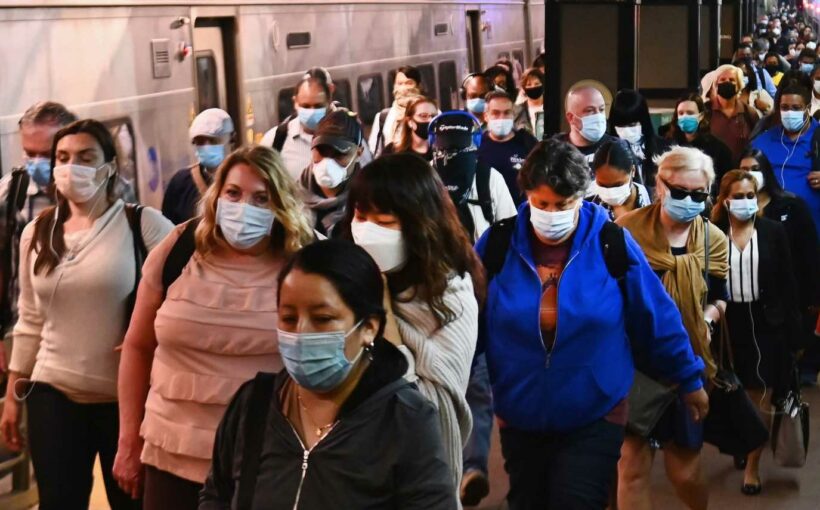- The unemployment rate for Black women fell from 7% to 5% in November — the largest drop when compared with other race and gender groups in the jobs report.
- "This is the first time where Black labor force participation got rewarded with actual job growth," said economist William Spriggs.
- However, total employment for Black women still lags pre-pandemic levels by 4.2%, the furthest behind of all groups.
The unemployment rate for Black women fell sharply in November, but labor market recovery from pre-pandemic levels remains uneven across race and gender lines.
While the headline number for job growth came in lower than expected in November, the unemployment rate for U.S. workers overall dipped from 4.6% in October to 4.2% last month, the Labor Department reported Friday.
For Black women, the employment picture showed even greater improvement. The unemployment rate for Black women fell from 7% to 5% in November — the largest drop when compared with other race and gender groups in the jobs report.
And while Black women did leave the workforce in November, the employment to population ratio among Black women rose last month. That signals the unemployment rate drop could be attributed to job seekers landing gigs more so than workers exiting the labor force, according to economists.
Black men also saw an improvement in employment last month with the unemployment rate falling from 8.3% to 7.3% in November.
"This is the first time where Black labor force participation got rewarded with actual job growth," said William Spriggs, chief economist to the AFL-CIO and a Howard University professor. "The fact that Black workers are now showing greater success in their searches — that's good news."
The improvement in the Black unemployment rate in November is particularly notable considering the labor market recovery for Black Americans has lagged other groups throughout the pandemic.
However, Spriggs pointed out the unemployment rate for workers without a high school diploma fell from 7.4% to 5.7% in November, lower than the unemployment rate of Black workers of all educational levels at 6.7%.
"Yes, employers are finally hiring Black workers. They're still the last of the queue," Spriggs said.
When looking at overall employment compared with pre-pandemic levels, Black women are the furthest behind. Black female employment in November was still 4.2% lower than in February 2020, while total employment for the U.S. was 2.2% behind pre-pandemic levels.
"The pace of recovery is still uneven. This was one month where we did see a significant drop in unemployment rates for Black women in particular," said Valerie Wilson, a director at the Economic Policy Institute. "Otherwise, we continue to see the known and established disparities in unemployment rates."
Industries dominated by female workers have been slow to recover jobs lost during the pandemic, said Nicole Mason, president and CEO of the Institute for Women's Policy and Research.
For example, the retail industry lost more than 20,000 jobs in November even as most sectors posted job growth.
"We've seen tremendous job growth in male-dominated sectors like construction and manufacturing and transportation, but in women-dominated sectors, things are pretty stagnant or we've lost jobs," Mason said.
Plus, Covid continues to impact job recovery, particularly as Americans monitor developments with the new Covid omicron variant.
"So much is riding on our public health response and how quickly we're able to address that so that the economy can fully recover and that recovery reaches everyone," Wilson said.
Source: Read Full Article
